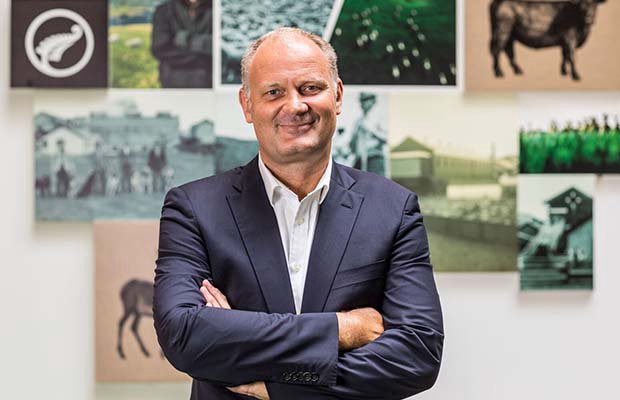He told Wednesday’s annual meeting that equates to $55 million annual profit, about double what was achieved in the 2017 year.
That result was affected by the closure of the Fairton plant at Ashburton.
Silver Fern Farms Co-operative and Chinese meat processor and retailer Shanghai Maling, are joint shareholders in Silver Fern Farms Ltd.
Silver Fern Farms Ltd chief executive Simon Limmer said the year under review was steady but complicated by covering 15 months.
That was necessary to align year-ends but meant twice accounting for the two least profitable months of October and November.
Stock flows were also disrupted by extreme weather.
Limmer said the coming year should be an improvement. He describes it as also likely to be steady but influenced by beef numbers in the coming months, the number of sheep carried over the winter and the ability of the company to cut costs.
Hewett described Silver Fern Farms Co-operative’s 2017 financial result as complex, covering 15 months and ownership implications while the partnership with Shanghai Maling was completed.
“It was unavoidable. We don’t expect another repeat of this in coming years.”
The co-operative reported an after-tax loss, including discontinued operations, for the 15 months to December 31 of $5.6m. At year-end it had cash on hand of $16.6m, no debt and shareholder equity of $272.2m, being its investment in Silver Fern Farms Ltd.
It paid a dividend of $3.2m (2.8c a share) and a patronage payment to suppliers of $900,000 (2.9c per eligible share).
Hewett said the patronage payment will this year be made to all livestock suppliers, including those operating through third parties, but in future it will be paid only to those supplying the company direct.
Shareholders supply 61% of stock handled by the company but Hewett said the patronage and dividend payments are designed to attract more shareholders to supply and more suppliers to become shareholders.
The treatment of dry and supplying shareholders prompted some discussion with Hewett pointing out supplier shareholders receive twice the bonus payments given to dry shareholders, a ratio he considered about right.
Dry shareholders provide capital and liquidity to the business and are often retired farmers who want to retain links to the company and the industry.
Silver Fern Farms Ltd reported sales of $2.2 billion and earnings before interest, tax, depreciation and amortisation, but excluding non-recurring items, of $50.9m. That was a 45% improvement on the previous year.
Hewett said he was happy with the direction of the company.
The season has been exceptional for farmers with lamb prices the best since 2011, beef the highest since 2015 and venison the best ever.
December was a record month during which the company paid $260m for livestock.
“The interesting thing to me is we sold all that stock. We didn’t store it in a freezer. It’s been sold and we’ve been paid.”
Hewett also announced an impending governance review would look at the appointment terms of directors, board size and the ratio of elected and independent directors.
The review was driven by concerns at a lack of skilled, potential directors and Hewett said it could result in the number of farmer directors on the co-op board increasing.
With fewer agricultural co-operatives the pool of experienced farmer-directors was reducing but the need remained with Silver Fern Farms having five farmers on the co-op and three on Silver Fern Farms Ltd.
The company runs courses in conjunction with Fonterra and Farmlands to give aspiring directors skill but Hewett said the need remains.
“The opportunity to experience that level of governance has diminished as there are fewer co-operatives.
“The gap between school boards of trustees and sports clubs and overseeing a $2.2 billion company is large so we need to prepare people for that role.”
The board will consult shareholders in the coming months and vote on changes later in the year.










